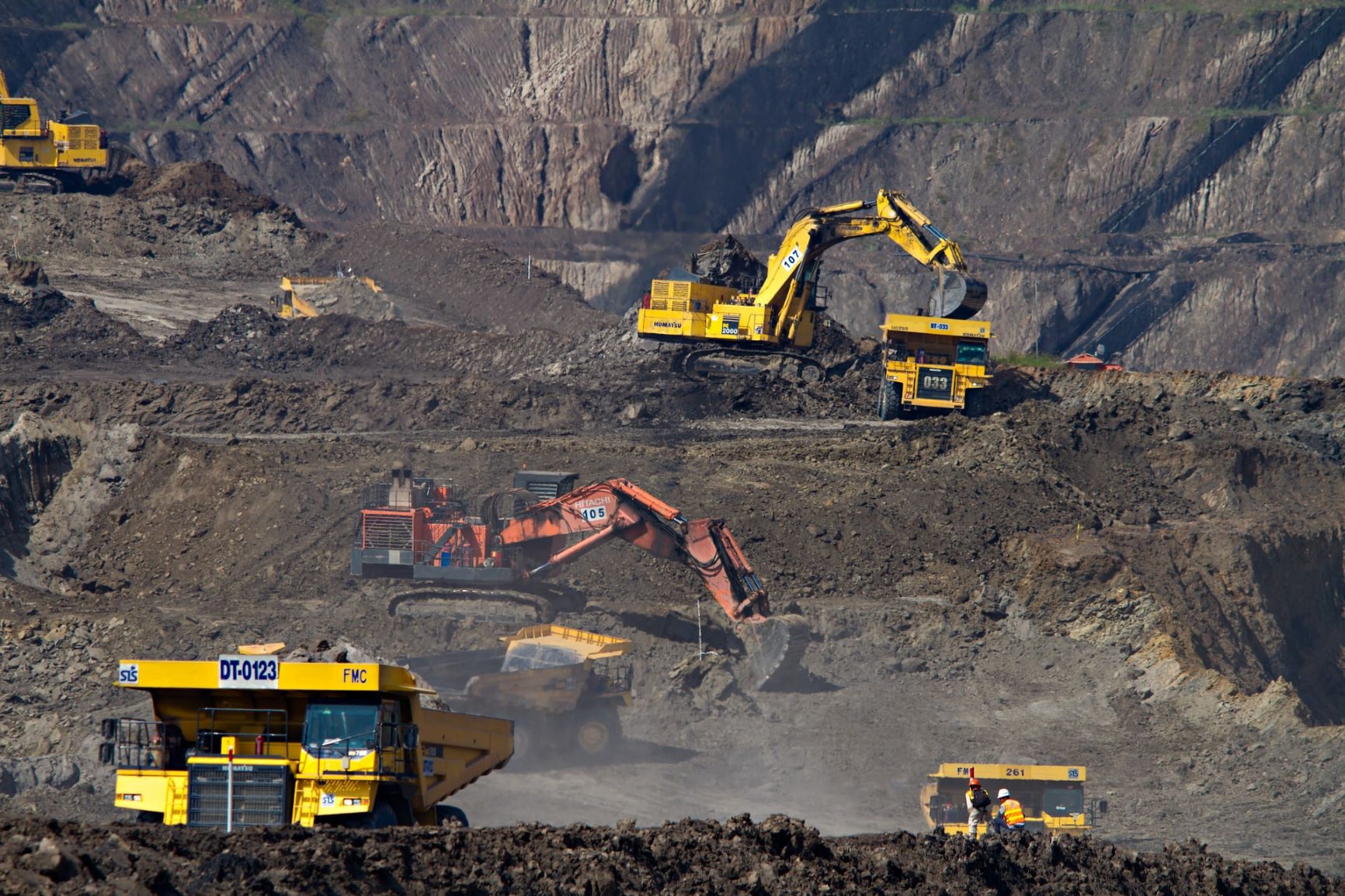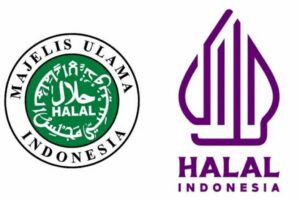The Ministry of Energy and Mineral Resources (ESDM) is calling on Governors throughout Indonesia to no longer issue new mineral and coal (minerba) mining permits. This is related to the promulgation of Law Number 3 of 2020 concerning Amendment to Law No.4 / 2009 concerning Mineral and Coal Mining (Minerba Law) on June 10, 2020 and in order to implement the provisions of Article 173C of Law No.3 / 2020 (new Indonesia Mining Law).
Law No.3 / 2020 as the new Minerba Law has indeed taken over the authority of permits from the Regional Government. In Article 35 (1) of this new Law, it is stated that mining business is carried out based on Business Licensing from the Central Government. However, Article 35 (4) states that the Central Government can delegate the authority to grant business licenses to Provincial Governments in accordance with the provisions of laws and regulations.
The call for stopping the issuance of new licenses is contained in a circular from the Directorate General of Mineral and Coal, Ministry of Energy and Mineral Resources, in letter number 742 / 30.01 / DJB / 2020 concerning Postponement of Issuance of New Licenses in the Mineral and Coal Mining Sector to Governors throughout Indonesia.
The letter, which was addressed to governors throughout Indonesia, was signed by Acting Director General of Mineral and Coal, Rida Mulyana, on behalf of the Minister of Energy and Mineral Resources. In the circular dated 18 June 2020, the Director General of Minerba conveyed five things to Governors throughout Indonesia.
First, with the enactment of Law no. 3/2020, the implementation of mineral and coal mining management authority by the Provincial Government which has been implemented based on Law No.4 / 2009 and other laws regulating the authority of local governments in the mineral and coal mining sector, remains valid for a maximum period of 6 (six) months from 10 June 2020, or until the issuance of implementing regulations from Law no. 3/2020.
Second, within the period of exercising the mineral and coal mining management authority as referred to in the first case, the governor cannot issue new permits as regulated in Law No.4 / 2009 and other laws regulating the authority of local governments in the mineral and coal mining sector.
Third, issuance of new licenses as referred to in the second case, in the form of issuance of:
- Mining Business License (IUP)
- Community Mining Permit (IPR)
- Temporary license to carry out transportation and sales
- Special Production Operation Mining Business License for processing and / or refining
- Production Operation Mining Business License specifically for transportation and sales
- Mining Service Business License (IUJP), and
- Production Operation Mining Business License for sale.
Fourth, issuance of permits and non-licensing other than those referred to in the third point, in the form of:
- Increase in Exploration IUP to production operation IUP
- Granting of an extension of the licenses that have been issued, as referred to in point three
- Licensing adjustments in the context of changing investment status, and
- Approval and recommendation related to the implementation of guidance and supervision of mineral and coal mining business activities.
In the period of implementing the management of authority as referred to in the first case, the issuance can be processed after meeting the requirements in accordance with the provisions of the legislation.
Fifth, for a permit application that has been submitted to the governor before 10 June 2020 and a permit has not been issued until the enactment of Law No.3 / 2020, the issuance process cannot be continued, in accordance with the provisions of Article 173C of Law No.3 / 2020.
Amendment to the Indonesia Mining Law
Investor reaction to the new Mining Law no. 3 of 2020 has generally been positive with the amendments demonstrating the Government’s desire to address some long-standing industry concerns. These include:
- the regulatory certainty over the issuance and extension of mining business licences;
- dealing with the continuation of operations by Contract of Work (“CoW”) and Coal Contract of Work (“CcoW”) holders;
- dealing with overlapping mining areas;
- improving coordination between the Central and Regional Governments;
- promoting investment in exploration activities; and
- dealing with illegal mining.
However, uncertainties continue in areas such as:
- the general divestment requirements; and
- the new state revenue imposts particularly for CoW/CCoW conversions into Special Mining Business Licences (or
“IUPK”).
The key provisions of interest to investors are discussed below:
Under the Amended Mining Law management of mineral and coal mining will be substantially under the control of the Central Government.
As a transitional measure, the authority of Provincial Governments for management of certain aspects of the mining sector (other than issuing new mining licences) will remain
for six months from the enactment of the Amended Mining Law.
This transitional period may be less than six months if the Central Government issues
implementing regulations for the Amended Mining Law within that period.
Having the Central Government assume greater control over the supervision of the mining sector should help in dealing with overlapping mining claims and resolve some of the coordination issues between the Central and Regional governments which have caused some investor concern in the past.
Amendments in this area include:
- that a company wishing to engage in a mining business is now required to obtain a set of Business Licences (“Perizinan Berusaha”), as granted by the Central Government, which consist of:
i) a Business Identification Number (Nomor Induk Berusaha);
ii) a Standard Certification (“Sertifikasi Standar”), and/or Licences (“Izin”);
iii) an applicable new mining business licence being:
A. a Rock Mining Licence (“Surat Izin Penambangan Batuan”);
B. an Assignment Licence (“Izin Penugasan”) for the exploitation of any radioactive minerals in the nuclear sector; and
C. a Special Mining Business Licence (“IUPK”) for the continuation of operations of a CoW/CCoW holder. - A licence from the MoEMR for a “nonintegrated” (as opposed to a fully integrated) refining and processing business is no longer required. This addresses confusion over whether such companies must have an IUP-OP for Processing and/or Refining (issued by the MoEMR) or an Industrial Business Licence (Izin Usaha Industri or “IUI” issued by the Minister of Industry) or both. Existing IUP-OPs for Processing and/or Refining will also be adjusted to an IUI within one year of the enactment of the Amended Mining Law.
A CoW/CCoW holder will now be guaranteed an extension as an “IUPK” under the following
conditions:
- for a CoW/CCoW not previously extended: a guaranteed extension for two x 10-year
terms; and - for a CoW/CCoW previously extended: a guaranteed second extension for a maximum of 10 years.
The procedure to extend, please contact and consult with info@bizindo.com.
The Amended Mining Law introduces longer mining business licence periods for:
a) mineral IUPs/IUPKs with integrated processing and/or refining facilities; and
b) coal IUPs/IUPKs with integrated coal development and/or utilisation facilities.
These IUP and IUPK holders are granted a 30- year business licence and may be eligible for
extensions of 10 years upon each expiration (after fulfilling the requirements of prevailing
laws and regulations). As indicated above the Amended Mining Law is silent on how many
times extensions can be provided.
For mineral and coal IUPs/IUPKs without integrated processing and/or refining/ development facilities these holders are granted only a 20-year business licence with a maximum extension of two-times 10 years.
The Amended Mining Law now extends the concession for ore exports past these deadlines to up to three years from the date of enactment of the Amended Mining Law. Similar to GR 1/2017 and PerMen 25/2018, this extension still requires the holders of IUP-OPs, IUPK-OPs and CoWs to construct a refining/smelting facility.
Under the Amended New Mining Law foreign shareholders must divest this 51% interest
to (in order of priority):
- the Central Government;
- Regional Governments;
- state-owned enterprises (“SOEs”);
- regionally owned business entities (Badan Usaha Milik Daerah or “BUMD”); and/or
- national private enterprises (Badan Usaha Swasta Nasional).
The Amended Mining Law indicates that direct transfers of IUP/IUPK interests (which was
previously not allowed) can now be carried out with approval from the MoEMR. Holders of
IUPs/IUPKs who wish to transfer must:
- have completed exploration activities (have resources and reserves data); and
- have fulfilled various administrative, technical and financial requirements.
Approval by the MoEMR is required for any such transfer as well as for the transfer of shares in an IUP/IUPK company. Holders of IUPs/IUPKs are prohibited from granting security over their IUPs/IUPKs including over their mining production.
The Amended Mining Law now requires IUP/IUPK holders to continue performing exploration activities, including through the setting aside of an exploration budget.
Holders of IUP-OPs/IUPK-OPs are also required to set aside a “mineral and coal reserve security fund” (Dana Ketahanan Cadangan Mineral dan Batubara) for new reserve discovery activities.
The Amended Mining Law requires the IUP/IUPK holders to carry out reclamation and post-mining obligations as follows:
- for reclamation to ensure a balance between land disturbance and land reclamation; and
- to carry out reclamation and post-mining activities to a 100% completion rate prior to relinquishing mining areas (for WIUPs/WIUPKs).
The Amended Mining Law stipulates that the implementing regulations will be issued within one year after the enactment.




 20% off today. Whatsapp us!
20% off today. Whatsapp us!